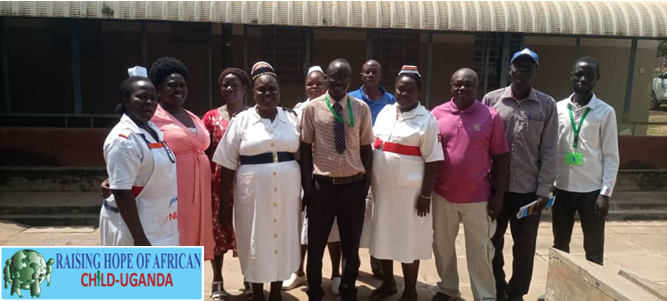
Women and girls, everywhere, must have equal rights and opportunity, and be able to live free of violence and discrimination. Women’s equality and empowerment is one of the 17 Sustainable Development Goals, but also integral to all dimensions of inclusive and sustainable development. Women empowerment is crucial in spurring rural economic development.
 RHAC-Uganda’s Women empowerment program places their economic inclusion as key indicator of women empowerment. Over the years we have provided platforms for empowering women to showcase their potential whether in leadership, technical skills stereotyped as male role such as electrical, plumbing, missionaries and agriculture and other social enterprise. These have yielded significant impact on women economic inclusion and development.
RHAC-Uganda’s Women empowerment program places their economic inclusion as key indicator of women empowerment. Over the years we have provided platforms for empowering women to showcase their potential whether in leadership, technical skills stereotyped as male role such as electrical, plumbing, missionaries and agriculture and other social enterprise. These have yielded significant impact on women economic inclusion and development.
 Gender and women’s economic empowerment is a critical area of focus for achieving gender equality and fostering inclusive economic growth. It involves providing women with the tools, resources, opportunities, and rights they need to participate fully in the economy. This includes access to education, employment, financial services, entrepreneurship opportunities, and decision-making power in economic and political spheres.
Gender and women’s economic empowerment is a critical area of focus for achieving gender equality and fostering inclusive economic growth. It involves providing women with the tools, resources, opportunities, and rights they need to participate fully in the economy. This includes access to education, employment, financial services, entrepreneurship opportunities, and decision-making power in economic and political spheres.
Key aspects of women’s economic empowerment include:
-
Education and Skill Development: Ensuring women have access to quality education and vocational training to enhance their employability and entrepreneurship skills.
-
Access to Finance: Providing women with access to credit, savings, insurance, and other financial services that are often harder for them to obtain.
-
Employment Opportunities: Promoting equal access to jobs, fair wages, and safe working conditions for women.
-
Entrepreneurship Support: Encouraging and supporting women to start and grow their businesses through mentorship, networking opportunities, and access to markets.
-
Legal Rights and Protections: Ensuring that women have the same legal rights as men, including rights to own property, inherit assets, and participate in economic decision-making.
-
Social and Cultural Change: Addressing cultural norms and gender stereotypes that limit women’s opportunities and roles in the economy.
-
Policy and Advocacy: Implementing and advocating for policies that promote gender equality and women’s economic empowerment at local, national, and international levels.
Efforts in this area aim to reduce gender disparities and create more equitable societies where women can contribute to and benefit from economic growth on an equal footing with men.

